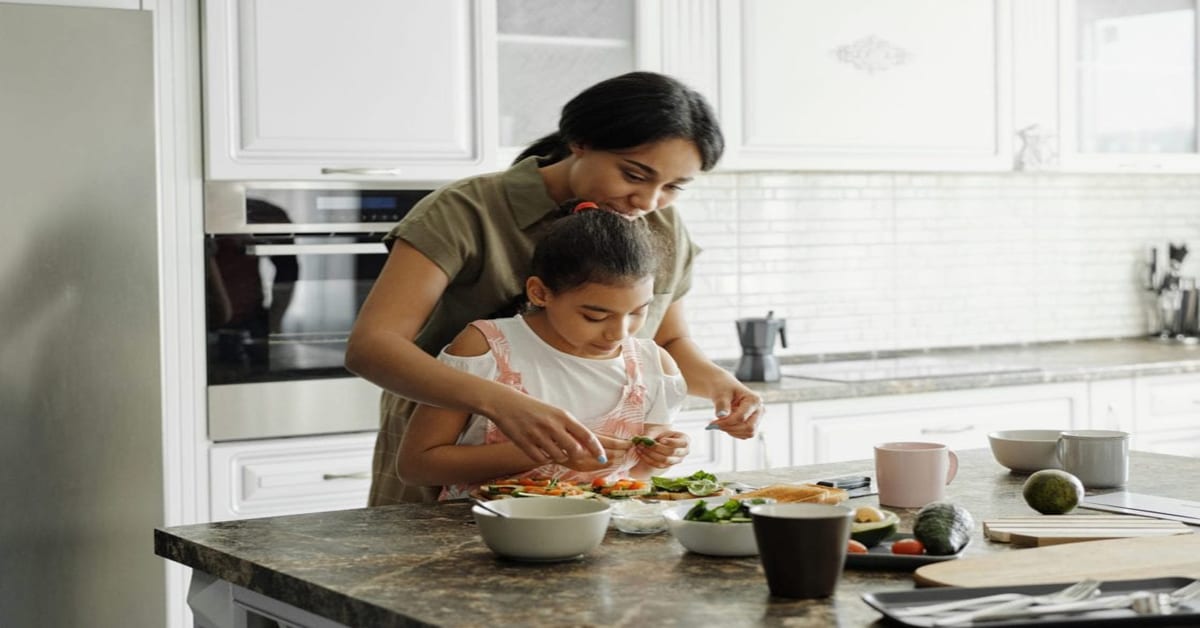Eating is part of our lives. And we cannot live without doing it. So, you got motivated to do your grocery. And you just went there to buy stuff that you probably see and try to put almost everything on your cart with the thought of you would just figure it out later about what you are going to do with it.

Then, you would get disappointed after a week that you were not able to utilize them. Some of them would perhaps stay at the pantry or in a fridge for a longer time. On the other hand, some of them would be thrown out while thinking to yourself of how much you just wasted. Of course, you realize that “you did not plan to fail, you just failed to plan”.
That is where meal planning should come into your mind. It could help you save a lot of things. So, basically you have got to have an idea of how to do it. Just like any other plan, you need a guide to help you set it out. And to absolutely avoid those previous setbacks that you experience of the last time’s unpleasant result.

Since you also want to find out how to execute of what is on your mind of whatever meal plan you are thinking for the coming days, you may also want to know how to live sustainably like having healthy, convenient and inexpensive source of food while not hurting the environment.
Interesting? Absolutely! This article will discuss all the things you need to know in your meal planning. Here, from the Zero Waste Lifestyle System, is a simple guide to your way of having well-planned meal while making efforts to save the environment.
What is meal planning?
Daniel Brasloff, founder of Freed Foodies, defines meal planning as researching and drafting recipes for a given time period, ensuring availability of ingredients and materials to prepare meals. Prior research is a must for meal planning to ensure recipes are easy to make and will last in the refrigerator or freezer within the timeframe you plan on consuming them.
According to Anju Mobin, a licensed nutritionist and the managing director for Best for Nutrition, meal planning is a process of planning what to consume beforehand that can greatly impact your health for good. This planning of what to consume beforehand is also what Sidq Aftab, the creative content creator for Holiday Educationist believes. He stated that meal planning is a practice where one pre-plan and prep for meals that are to be cooked in the next week or maybe in a month, and must see to it that key factors are well taken into consideration such as calories and fibers.
Meal planning may sound to do a lot of work, however to Lisa Richards, a nutritionist of The Candida Diet,it is a simple act of creating a list of meal for the week and doing moderate prep-work ahead of time. Druhin Bala, CEO of getchefnow.com also added that aside from the beforehand preparation of meals, it is also an act of carefully portioning and storing ingredients for the meals and the meals themselves. In this way, individual or a family would skip the urge of buying fast food.
As what Jaime Bbachtell-Shellbert, a registered dietician and nutritionist said, this would create healthy eating habits by avoiding the desire the desire to take out, grab fast food or high fats, calories and low nutrients food. In accordance, Amanda Kostro Miller of Fitter Living emphasized that it is a deliberate organization of meal that would establish more time efficiency, cost effectiveness and more structured diet.
Moreover, meal planning helps you gain control over what you consume. You have the ability of what to put or what not to include in your diet. For instance, according to Roshni Sanghvi, a fitness expert and nutritionist, people with diabetes can control diabetes because they can control what they consume. Also, meal planning helps individual to adapt to changes. Changes that seek to help nourish the body for a healthy living. In a statement given by Grandmaster Ladan Homayoon, an industry expert in the field of diet, heath, wellness, and fitness, she claimed that accommodating changes in our lives reflected our diet for health and well-being.
Lastly, Anna Rider, a Food Writer and Recipe Developer at Garlic Delight, believes that meal planning is setting up a system requiring less thinking and less energy in meal preparation.
Why meal plan?
Managing the household is a bit tough, especially for people who have families on their own and those who are living alone. For instance, a working mom with three children managing the household and managing finances for the family expenses on one hand and tending to deadlines from work on the other gets a lot of stress. Whereas, those people who are living alone in rented apartments and having busy schedules are printed to consume fast food regularly due to its convenience and cheaper prices.
Thus, the need to practice meal planning is quite necessary. It offers various reasons that would answer the dilemma that one might face in household management. Take for instance on word of Daniell Brasloff when he stated that meal planning allows someone to manage time and avoid stress throughout the week so as not to forget taking meals. Druhin Bala further supplemented it by his statement that it will make someone eat healthier and cheaper food and save on time.
In addition, Trisha Best, a registered dietician at Balance One Supplements, says that meal planning and preparation allow you to evaluate your available ingredients and make a list of what you have and have not. In other words, you can have your own inventory of what is there in your pantry and fridge. And this will make you come up with idea which Lisa Richards believes “to buy in bulk and purchase only what you need, plan nutrient dense meals, avoid last minute meals, save money, try new foods and cook only what you prefer while allowing yourself to develop a list of several meals that your household prefer”.
According to Lynell Ross of Zivadream, you would not rely on packaged foods because the ingredients you purchased would drive you to select the good from it. Thus, it avoid you from getting stress and is producing food waste that may harm the environment. In fact, a vegan blogger, Roberto Anzaluda says that meal planning keeps you on staying on track in consuming healthy food while cooking less, for example, a hot stove helps you to save energy as you can re-use it to cook multiple food without the need to preheat it.
What these experts mentioned about reasons of meal planning also improves your effort to lessen harmful environmental impacts since you can cut off carbon footprint and wastes as well as to lessen meat-based consumption while putting health risks at bay.
To sum it up, there are five reasons that you have to remember about the benefits of meal planning. These five reasons allow you to save money; reduce the amount of food waste; improve overall health; and apply cooking skills and creativity in trying or producing new recipes.
How often should you meal plan?
Since meal planning requires thinking and effort, it is crucial to decide how often you would do it. The schedule of meal planning varies depending on the availability of the individual. Some people have it every day, some have it every two days, some have it weekly or some have it in a monthly basis. However, the ideal schedule is once a week.
According to Mobin, for beginners, a two-day plan is a good start to slowly shift to a weekly basis. And from there, individual can evaluate what went wrong and what went well on those weeks of implementing the said plan. This will help individual to determine the task to be done and other Initiatives that can be utilized for future meal planning. In this way, it is easy to achieve the goal of meal planning.
Also, the weekly meal planning will allow you to save those perishable products such as milk, vegetables and fruits from spoilage. And this can keep you track on what ingredients you still have in your fridge and pantry easily as it will not get overwhelming on your part. Besides, this will avoid you from over purchase of products and from throwing out food. This will help you cut off both expenses, time and food waste.
The weekly meal planning will give you time to think without pressure as you can do it during your day-off. It might take you hours for start or even five minutes when you are making it as a habit in the long run.
Meal planning may consume more time at the beginning however it will become easier in the long run and more beneficial than those of who do not practice it.
Things to procure and do before meal planning session
Meal planning just like any other planning is a task. There are things that you should do so that you can come up with a plan that is achievable and sustainable. Of course, it requires effort. But effort shouldn’t be overwhelming and exaggerated. It just has to be realistic. Remember, the reason why you need a meal plan is for you to save time and avoid stress. So, you just have to be systematic in approaching it to prevent those unnecessary actions.
Before conducting a meal planning session, you need to have a scratch paper and pen or as simple as your phone for to take notes of some necessary things. Also, you have to remember the 4As: acquire a list; ask yourself; ask the expert; and apply the acquired information.
1. Make a list
Check your pantry or fridge and have an inventory of all the ingredients or available food that you have. You have to come up with the list of things that you already have as well as the things that you don’t have. Oftentimes, this will make you realize how much food you have stored for the long time. Your list can also maximize whatever ingredients you have that may help you to cut costs on your next purchase.
Aside from a list of available food, you also have to come up with a list of recipes or meals that you want to have for the duration of the implementation of what you have plan. This will help you match the meals with the ingredients that you have. In this way, you will not get overwhelmed and will be able to avoid last minute purchase of ingredients when preparing for your meal because you already acquired a list of both foods and meals.
2. Ask yourself
It is important to ask yourself questions that would spark your critical thinking and creativity. Asking yourself questions can help you track down habits that might be good or bad. It allows you to reflect on the changes that you have to do whether you have to continue some habits or to eliminate it accordingly. This will make you more committed of what you want to achieve in your meal planning. Thus, it is easier for you to identify what might work for you and what might not. Aside from that, asking yourself questions would give you insights of situations ahead of you.
According to Robert Anzaluda, asking important yourself important question such as: What food will be in season for the next meal prep?; What are the foods being produced locally?; And where to buy foods that offer discounts will help not only to save time but also save money, effort and the environment. This would bring great benefit for your health and budget!
3. Ask the experts
Meal planning also needs the expertise of those professionals, because there are varieties of diet that each individual needs. For example, someone who is allergic to dairy cannot consume dairy products, so it has to be taken into consideration. There are also issues that couldn’t be seen by naked eyes such as the lack of vitamin D or Iron that would need professional help to know identify it.
Grandmaster Ladan Homayoon advised to consult a health professional such as doctor or nutritionist in a month before coming up with a meal plan, because seeking their advice you are able to modify the meal plan according to what your body needed. This is highly recommended especially to those people having health problems such as diabetes. Also, this allows you to be aware of how much calories, fats and other nutrients you can acquire and consume to be able to become healthy and stop stay fit.
4. Apply the acquired information
This part is actually a summary of the other 3As. The information that you got coming from with a list to asking experts of what you need helps you to create a conclusion of what your meal plan should look like. This allows you to take into the consideration the factors that you have to take note in having a meal plan.
With these materials and 4As, you can now confidently come up with your own meal plan.
Use your meal plan to shop smartly
Your meal plan can help you to rearrange how you shop especially in purchasing the necessary supplies that you need for the entire week. This will prevent you from wasting energy as it will keep you from wandering aimlessly at the market or grocery store for a longer time only to find out what you buy is not actually necessary.
Some people shop with a list that does not reflect the actual inventory of the stock that they have. So, they end up buying things that they already have and regret it; to their mind if they only knew that they still have they could have been able to purchase other necessary things. This scenario will be avoided if you have meal planning.
As what the previous discussion has tackled, in meal planning you have to bear in mind to able to come up with accurate list of what you have and have not. Again, this can help you to easily identify what you need to buy. An established list of ingredients or foods that you came up with after the meal planning can guide you to what part of the grocery you should go and get only what you needed. Your list is your reference in purchasing food.
As your list will give you a clear idea of what to buy, purchasing comes very easy. Because, you already have clearer picture in your mind and that makes you committed not to be tempted to buy unnecessary or unhealthy food. You can now lessen those food that may hinder you get the proper nutrition that your body needs. The clarity in your mode helps you to disregard popping ideas in your mind that might affect the plan that you want to carry out. This will not only make your shopping more directive but also smarter because you already have clear comparison of what to buy and what not.
Also, your meal plan allows you to seek for whole sale and plastic-free packaged food. This will make you conscious of how much waste you can produce or lessen compare to those days that you do not have meal plan. You can help to prevent in sending wastes to landfill that may affect both land and water as well as air due to the pollution or environmental risks it may bring. This will also save you money which can be used for other necessities. For example, the extra money that you accumulated after a month of purchasing bulk ingredients or food can now be used for paying bills.
Finally, when purchasing the ingredients that you need you can practice checking labels. It will not only allow you to know the nutritional facts it has but also the duration of how long you can store the food to avoid spoilage and waste of money. Thus, it makes you shop smarter than ever before.
Steps on a balanced meal prep
Basically, there are only for steps that you have to bear in mind in having a balanced diet. It does not have to be a long list what to do and what not to. Here, you will get to know the 3Cs that will create a huge impact on how you can have a balanced diet.
1. Consider what type of diet is applicable for you
There is no universal diet that would cater everyone. As you can see there are people who are thin and fat, short and tall and so on so forth. And so as everyone’s diet. Some may need more protein and may not. It depends on what your body really needs. Because, what is good for you, might not be good for others, thus, asking your nutritionist of what you should take will help you address what is lacking in your diet.
2. Consider the food pyramid
It is a must that you consider the food pyramid. As we all know, the food pyramid is the graphic that depicts the principles of good nutrition. So, creating your food in accordance to the principles of food nutrition will give you the assurance that your meal plan is really going on the right direction. Since the food pyramid is the representation of optimal number of food consumption, this will remind you of how much calories you take and what to do to minimize or maximize them depending on what your body needs.
3. Consider what is flexible technique that with help you improve meal prep without compromising the necessary nutrition
Since one of the purposes of meal planning is to save time, you also have to consider techniques that provide you lesser time in preparing meal. Knowing and discovering new knowledge in preparing food that is handy and convenient keeps you away from running after fast food and unhealthy consumption. Meal preparation theta will suit your busy schedule and balanced diet will create wonderful milestone not just for yourself but also for the environment. This will make you feel good about yourself and eventually to influence and inspires others to the same.
Conclusion
Meal planning may be tedious, requires time, effort and thinking. However, the result is also amazing and fulfilling. It helps you many ways such as improving your health status, your skills particularly in planning, your effort in caring for environment and your responsiveness as steward of the earth. At the end of the day, meal planning makes you realize that you did not fail to plan.




